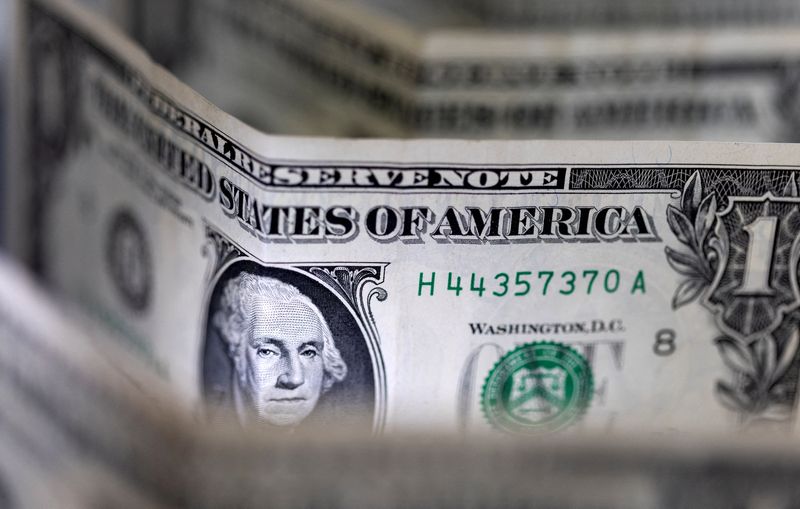By Peter Nurse
Investing.com - The U.S. dollar inched lower in early European trade Friday, but remained largely on the front foot ahead of key U.S. inflation data and in the wake of the European Central Bank pointing to future interest rate hikes.
At 2:55 AM ET (0655 GMT), the Dollar Index, which tracks the greenback against a basket of six other currencies, traded marginally lower to 103.190, after recording an overnight gain of 0.7%.
The focus Friday will be on the release of the consumer price index for May, at 8:30 AM ET (1230 GMT), which is expected to rise 0.7% for the month and 8.3% for the year ending in May.
The core CPI number, which excludes volatile food and fuel prices, is expected to cool a fraction, rising 0.5% for the month and 5.9% for the year, compared with a gain of 0.6% in April and 6.2% for the year in the previous reading.
This could provide the Federal Reserve with some room to slow its rate hiking cycle later in the year, with the U.S. central bank widely expected to announce next week the second of three consecutive 50-basis-point interest rate hikes.
That said, Treasury Secretary Janet Yellen told U.S. lawmakers earlier this week that inflation is likely to stay high, which could be seen as the White House preparing the market for another elevated number.
EUR/USD rose 0.2% to 1.0631, rebounding a touch after earlier touching its lowest level since May 23, after dropping almost a full percentage point on Thursday following the latest ECB meeting.
The central bank confirmed on Thursday it will end its long-running bond-buying scheme at the start of next month and said it would raise rates by 25 basis points in July, and again in September, potentially by a larger amount.
Deutsche Bank now expects the ECB to deliver two 50 basis point rate hikes this year after kicking off a tightening cycle with a quarter point move in July.
Yet, this hawkish view seemed to be in the minority as the euro struggled against the dollar even after the promise of the ECB’s first hike in over a decade, amid worries that such a pace of tightening would hurt countries like Italy, one of the Eurozone nations with the biggest debt burdens.
“We like the dollar story this summer and Europe is sadly on the front line of the stagflationary shock of the war in Ukraine,” said ING, in a note.
Elsewhere, USD/JPY fell 0.4% to 133.86, still not far removed from a recent 20-year high with the Bank of Japan having repeatedly committed to keeping interest rates low.
GBP/USD was largely unchanged at 1.2491, while the risk-sensitive AUD/USD rose 0.3% to 0.7121 and USD/CNY dropped 0.1% to 6.6840.
Which stock should you buy in your very next trade?
With valuations skyrocketing in 2024, many investors are uneasy putting more money into stocks. Unsure where to invest next? Get access to our proven portfolios and discover high-potential opportunities.
In 2024 alone, ProPicks AI identified 2 stocks that surged over 150%, 4 additional stocks that leaped over 30%, and 3 more that climbed over 25%. That's an impressive track record.
With portfolios tailored for Dow stocks, S&P stocks, Tech stocks, and Mid Cap stocks, you can explore various wealth-building strategies.

